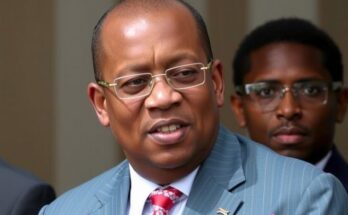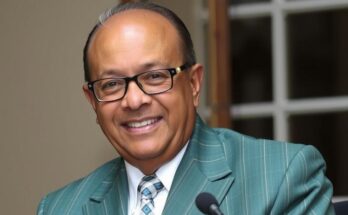The 2024 U.S. presidential election is closely monitored globally, as experts from various regions convened at MIT’s Starr Forum to discuss its implications. Perspectives from Latin America, India, and Africa reveal a diminishing perception of U.S. democracy as a model, alongside a growing focus on local political dynamics. Concerns regarding rising nationalism and declining American influence in favor of alternatives like China were highlighted. The panel concluded that while America still holds significance, the global landscape is increasingly defined by national priorities.
The impending 2024 United States presidential election holds significant implications not only domestically but also on a global scale. Hence, the focus of the recent Starr Forum at the Massachusetts Institute of Technology (MIT) was to explore international perspectives on this pivotal event. Moderated by Evan Lieberman of the Center for International Studies, the forum gathered experts from various global regions to analyze how the election resonates with their respective societies. Diverse insights were shared regarding the perceptions of U.S. democracy and its relevance to other nations. Katrina Burgess, from Tufts University, emphasized the changing perceptions among the Latin American diaspora regarding American democracy, stating, “American democracy is no longer perceived as a standard bearer.” She highlighted the complexities of aligning with particular presidential candidates based on diverse political concerns, especially around issues of immigration and energy. Prerna Singh from Brown University discussed India, identifying a movement away from democratic principles under the current leadership. She pointed out, “Indian leaders don’t confer with the press,” stressing the divergent political culture compared to the United States, where open debates are a norm. Singh warned against the rise of exclusionary nationalism in India, which threatens its democratic integrity. John Githongo, a fellow at MIT’s Center for International Studies, noted the declining influence of American soft power in Africa, stating, “America’s soft power infrastructure in Africa is crumbling.” He remarked on the increasing appeal of China as a political partner, reflecting a shift in allegiance among several African nations. Furthermore, Daniel Ziblatt from Harvard explored the parallels between populist movements emerging in Europe and the United States, noting the emergence of radical right factions and the potential breakdown of traditional transatlantic ties. The forum concluded with a reflection on the diminishing global investment in the outcomes of U.S. elections. Panelists acknowledged a growing perception that nations, including India, prioritize local concerns over U.S. politics. However, they highlighted the global trend of political polarization, with participants debating the interconnectedness of political behaviors across nations. In summary, the 2024 U.S. election is being observed through a multifaceted global lens, revealing concerns about democracy, leadership, and international relations among various regions.
The article explores the global ramifications of the 2024 U.S. presidential election, highlighting the perspectives of experts from various regions who convened at a forum hosted by MIT’s Center for International Studies. The event aimed to correlate the interdependence of global political dynamics with the U.S. electoral process, drawing upon the expertise of scholars who specialize in international relations and political science.
The dialogue at the Starr Forum underscored the complex ways in which global citizens view the upcoming U.S. presidential election. While there is a recognition of America’s influence, it is increasingly challenged by local political developments and shifting international alliances. The disparities in political engagement and perceptions across regions offer critical insights into the evolving nature of global politics, particularly as countries grapple with their own democratic aspirations and challenges.
Original Source: news.mit.edu




